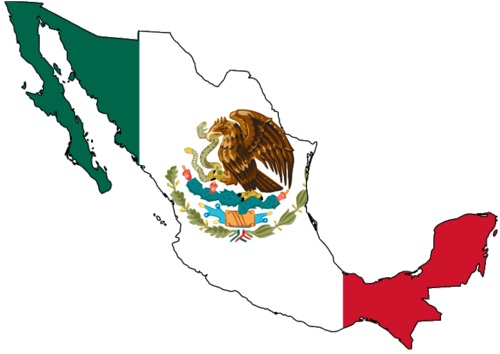Mexico. We’ve all heard of the recent political unrest. We’ve all heard the dark tales of violence, corruption, and a seemingly never-ending drug war. But little has said by the outside world about the country’s successes, growth, and position in the new global economy. Meanwhile, beyond the bad news and political propaganda, Mexico has quietly placed itself at the top of the pack in the region; ready to become the region’s economic leader. With recent success in a variety of industries, a prime geographic location, and a strong, cheap workforce, Mexico is poised to become THE place to do business in Latin America, even giving Brazil a run for their money.
Why Mexico? Why now?

Mexico’s economic success is nothing new to anyone familiar with the North American republic. Since the birth of NAFTA during the ’90’s, Mexico has been able to leverage free trade with the US and Canada to bolster its trade market, and in turn ramp up production across a number of industries. Automobile production, consumer services, beverage production/distribution, and telecom have been some of the main industries adding to the economic development, and all have great potential for future growth.
A company like America Movil, ranked #5 on the Latin Target 500 list, is not only growing in Mexico, but also as a MultiLatina expanding further afield is holding dominant market shares in many countries outside the region. This is also happening with companies like FEMSA, who controls a significant part of Coca Cola’s distribution and production, and Grupo Bimbo, who has quietly become the world’s biggest baker and distributor of baked goods. With this wave of sustained growth, many economists predict that within the next 10 years, Mexico may be able to pass Brazil as the region’s top economy.
The World’s Most Energy Secure Nation
According to an official report by the U.S. Chamber of Commerce, Mexico has long positioned itself as the world’s most energy secure nation. This statistic was measured amongst the 25 largest energy-consuming countries. Although we may just be realizing it now, this has actually been the case for the past 30 years. While this may not necessarily be great for direct investment due to state ownership of Pemex, the country’s larges energy company, it does a lot to help fuel (no pun intended) the local economy. Petroleum and other gas sales represent 40% of the Mexican government’s revenue, thus strengthening government capital, and making it easier for other companies to operate under a stable economic climate.
There are also many residual benefits to this energy dominance, as Pemex works with many companies to help make its operation run smoothly. In recent years, the company has awarded hundreds of millions of dollars worth of development rights to outside businesses, giving private companies long-term contracts. In the first quarter of last year (2012), Pemex reported revenues at USD $10.6 billion, up nearly 30% from the previous year.
The bottom line is that with steady trade and exports (USD $227 billion in 2012), a growing telecom sector, energy stability, and a burgeoning working class, Mexico’s future looks as bright as ever. Industries are growing, investment options are widening, and the world is finally starting to listen. Mexico is poised to become the biggest economy in Latin America, and they are ready for it, one step at a time.
For more insight and access into Mexico’s top companies, including America Movil, FEMSA, and Pemex, take a test drive of Latin Target and find out how Latin Target can enable your sales and marketing teams with contact info on decision makers in the region.
 Brazilian network operator Vivo will be making life easier for prepaid mobile account holders in the near future, as they announce a new top-up option, thanks to PayPal and Giesecke & Devrient (G&D). G&D will now provide the company with a mobile payment solution that will allow their prepaid account customers to top up their credit directly on their cellphone using PayPal.
Brazilian network operator Vivo will be making life easier for prepaid mobile account holders in the near future, as they announce a new top-up option, thanks to PayPal and Giesecke & Devrient (G&D). G&D will now provide the company with a mobile payment solution that will allow their prepaid account customers to top up their credit directly on their cellphone using PayPal.
